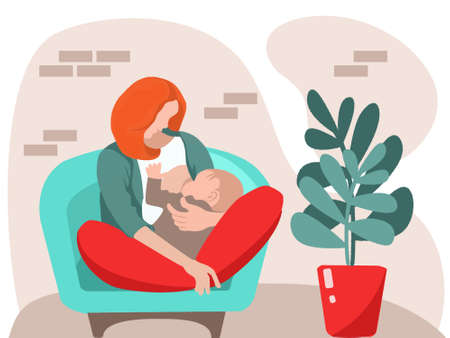Understanding Mental Health Support Groups in the UK
Mental health support groups play a vital role within the UK’s diverse mental health landscape, offering individuals a safe space to share experiences, build resilience, and foster connections. These groups are not one-size-fits-all; they differ significantly across regions and communities, reflecting local needs and cultural nuances.
In the UK, support groups often complement NHS mental health services and provide informal peer-led or professionally facilitated environments. Unlike formal therapy, these groups focus on mutual understanding and shared experience rather than diagnosis or treatment alone. This approach helps reduce stigma and encourages open conversation about mental health challenges faced by individuals and families.
Types of Mental Health Support Groups
| Type of Group | Main Focus | Common Settings |
|---|---|---|
| Peer-Led Groups | Shared lived experiences, mutual support | Community centres, online platforms |
| Condition-Specific Groups | Support for specific conditions (e.g., anxiety, depression) | Hospitals, charities, local clinics |
| Family & Carer Groups | Support for families and carers of those with mental health issues | Charity organisations, parent networks |
| Youth-Focused Groups | Mental wellbeing for children and young people | Schools, youth clubs, local authorities |
The Role of Support Groups in the UK Context
Across England, Scotland, Wales, and Northern Ireland, mental health support groups bridge gaps in traditional care by providing ongoing emotional assistance and practical advice. They help break down barriers to seeking help—particularly important given regional differences in access to mental health services. For example, urban areas may offer a wider range of groups compared to rural communities where resources can be limited.
Cultural Considerations Across Communities
Different communities within the UK bring unique perspectives to mental health support. For instance, some groups may tailor their approach to specific cultural backgrounds or languages, ensuring inclusivity for people from BAME (Black, Asian and Minority Ethnic) backgrounds or those with different faiths. This diversity allows individuals to find a group that aligns with both their personal identity and their mental health needs.
The variety of mental health support groups available across the UK means there is likely an option suitable for everyone—whether you are seeking peer-led discussions or professional guidance. Understanding these differences is the first step towards finding the best fit for your personal journey or supporting someone you care about.
2. Types of Support Groups Available
When seeking mental health support in the UK, it’s important to understand the wide variety of group formats available. From informal community gatherings to structured therapy sessions, each option offers unique benefits tailored to different needs and preferences. Here’s a breakdown to help you find your best fit:
Peer-Led Support Groups
These groups are often facilitated by individuals with lived experience of mental health challenges. They offer a safe and non-judgemental environment where members share stories, coping strategies, and encouragement. Many people find comfort in connecting with others who truly understand their journey.
Professionally-Facilitated Groups
Run by qualified therapists or mental health professionals, these groups focus on evidence-based approaches such as Cognitive Behavioural Therapy (CBT) or mindfulness. Sessions are usually structured and goal-oriented, ideal for those seeking guided support.
Condition-Specific Groups
Some groups cater specifically to certain conditions—such as anxiety, depression, bipolar disorder, or postnatal mental health—providing targeted discussion and resources relevant to those experiences.
In-Person vs Online Formats
The UK offers both traditional face-to-face meetings and digital alternatives. Online groups have become increasingly popular, especially post-pandemic, making support more accessible for those with mobility issues or busy schedules. In-person groups may be hosted in local community centres, GP surgeries, or charities like Mind and Rethink Mental Illness.
Support Group Formats at a Glance
| Format | Facilitator | Main Features | Accessibility |
|---|---|---|---|
| Peer-Led | Lived Experience Volunteers | Informal sharing, mutual support, empathy | Local venues & online platforms |
| Professional Therapy Groups | Mental Health Professionals | Structured sessions, evidence-based techniques | NHS services & private clinics (some online) |
| Condition-Specific Groups | Varies (peer/professional) | Focus on specific diagnoses & tailored resources | Charities, hospitals, online forums |
| Online Communities | Peers/Moderators/Professionals | Anonymity, flexibility, wide reach | Accessible from anywhere in the UK |
No matter where you are in your mental health journey—or whether you prefer a cosy village hall or a confidential Zoom chat—the UK’s diverse landscape of support groups ensures there is something for everyone.

3. How to Find and Choose the Right Group for You
Finding a mental health support group in the UK that truly suits your needs can feel overwhelming, especially with so many options available. However, taking the right approach and considering what matters most to you will help ensure you find a safe and supportive environment.
Accessing Reputable Support Groups
Start by exploring well-established organisations such as Mind, Rethink Mental Illness, and Samaritans. These groups often have directories or can connect you with local and national support networks. NHS services, your GP, or community mental health teams can also recommend accredited groups. Online platforms like Meetup or Eventbrite host both virtual and face-to-face gatherings—just be sure to check their legitimacy before joining.
Checklist: What to Consider Before Joining
| Consideration | Why It Matters | Questions to Ask |
|---|---|---|
| Group Focus | Ensures the group addresses your specific concerns (e.g. anxiety, depression, carers). | Is the group condition-specific? Does it match your experiences? |
| Facilitation | Professional or peer-led groups differ in approach and structure. | Is there a trained facilitator? What is their background? |
| Confidentiality & Safety | A safe space encourages open sharing and trust. | What are the confidentiality guidelines? How are issues handled? |
| Format & Frequency | The right format (in-person, online, hybrid) supports your participation style. | How often does the group meet? Is attendance flexible? |
| Diversity & Inclusivity | A welcoming environment embraces different backgrounds and experiences. | Does the group reflect cultural sensitivity? Is everyone encouraged to contribute? |
| Cost & Accessibility | Practical considerations ensure ongoing involvement. | Are there fees? Is the location convenient or meetings accessible virtually? |
Ensuring Alignment with Your Needs and Values
Your comfort within a group is vital. Attend a taster session if possible—many UK groups offer this. Reflect on how you feel during and after meetings: Do you sense empathy and respect? Are members’ values aligned with your own beliefs about recovery and wellbeing? Don’t hesitate to try several groups until you find one where you feel understood, supported, and inspired to grow. Remember, prioritising your unique journey is key to finding lasting connection and positive change through mental health support groups in the UK.
4. What to Expect When Joining a Group
Taking the first step into a mental health support group in the UK can feel daunting, but knowing what to expect can help you feel more at ease. Here’s a look at how these groups usually operate, the essential role of facilitators, and what you might experience during your initial meetings.
Typical Structure of UK Support Groups
Most mental health support groups in the UK are designed to be welcoming and inclusive spaces. Sessions are often held weekly or fortnightly, either face-to-face in community centres, churches, or NHS facilities, or online via secure platforms. Groups range from informal peer-led circles to those facilitated by trained professionals. Here’s an overview:
| Type of Group | Venue | Facilitation |
|---|---|---|
| Peer-Led | Community centres, online | Group members share responsibility; facilitator may rotate |
| Professionally Facilitated | NHS clinics, charities, schools | Mental health professional or trained volunteer leads sessions |
The Role of Facilitators
Facilitators play a crucial part in creating a safe and respectful environment for everyone. Their main responsibilities include:
- Setting ground rules for confidentiality and respect
- Encouraging participation without pressuring anyone to speak
- Managing time and keeping discussions on track
- Providing resources or signposting additional support if needed
You’ll find that many facilitators in the UK have personal experience with mental health challenges themselves, making them empathetic guides through your journey.
Your First Few Meetings: What It Might Feel Like
Your first encounter with a support group is likely to bring a mix of emotions—nerves, hope, relief, and maybe even scepticism. This is completely normal. Most groups understand that new members need time to settle in. You’ll never be forced to share until you’re ready; simply listening is perfectly acceptable. Over time, as trust builds, many people find it easier to open up.
What New Members Often Experience:
| Sensation/Emotion | Common Response from Group |
|---|---|
| Nervousness or Anxiety | Warm welcomes and reassurance from facilitators and peers |
| Uncertainty about Sharing | No pressure to speak; option to observe quietly at first |
| A Sense of Belonging (over time) | Shared stories help foster connection and understanding |
| Learnt Coping Strategies | Practical advice from lived experiences within the group |
Cultural Touchpoints for UK Groups:
- Cups of tea or coffee are often available—a classic British comfort!
- Sessions typically start and end on time out of respect for everyone’s schedules.
- Diversity is respected; groups welcome people from all backgrounds.
- The “no pressure” approach is common—everyone moves at their own pace.
The journey may begin with uncertainty, but many UK-based support groups offer gentle guidance, empathy, and the shared wisdom of lived experience to help you feel right at home.
5. Navigating Group Dynamics and Getting the Most Out of Your Experience
Joining a mental health support group in the UK can feel both comforting and daunting, especially as you find your place within a new community. Understanding how to engage authentically, deal with challenging moments, and build meaningful connections while maintaining healthy boundaries is key to making the most of your experience. Here are some essential tips and practical strategies tailored to the unique culture of British support groups.
Tips for Engaging Authentically
- Be Yourself: The British value sincerity—there’s no need to put on a brave face or pretend everything is “fine.” Share at your own pace and remember it’s perfectly okay to say “I’d rather not discuss this right now.”
- Listen Actively: Sometimes, just listening is more powerful than speaking. Use gentle affirmations like “I hear you” or “That sounds tough,” which are common in UK group settings.
- Respect Diversity: Support groups in the UK are rich with people from different backgrounds. Embrace diversity by being open-minded and avoiding assumptions about others’ experiences.
Handling Challenging Moments
- Stay Calm Under Pressure: If conversations become heated or uncomfortable, take a deep breath. Phrases like “Let’s agree to disagree” or “Maybe we could revisit this later” can help diffuse tension politely.
- Seek Support: Don’t hesitate to speak privately with the group facilitator if you’re struggling with certain interactions. It’s common practice in UK groups for leaders to offer confidential chats after sessions.
- Avoid Judgement: Everyone’s journey is unique. If someone shares something that challenges your perspective, remind yourself that empathy is more helpful than advice-giving.
Building Connection While Maintaining Boundaries
| Connection-Building Tip | How to Maintain Boundaries |
|---|---|
| Share personal stories when comfortable | Avoid disclosing details that make you uneasy; it’s okay to keep some things private |
| Offer support through kind words or gestures (like making tea) | If asked for more than you can give, gently say “I’m not able to do that right now” |
| Exchange contact details if you wish to connect outside group meetings | You’re never obligated to socialise outside the group—choose what feels right for you |
| Attend group social events or workshops for deeper connection | If you need space, it’s acceptable in British culture to politely decline with “Sorry, I won’t be able to make it this time” |
The Power of Gentle Boundaries: A UK Perspective
The British approach often favours quiet strength and subtlety—setting boundaries doesn’t have to feel harsh. Use polite language such as “I appreciate your concern but I’d rather keep this private,” or “Thank you for sharing, I need some time to process.” This keeps relationships respectful while protecting your emotional wellbeing.
Nurturing Growth Through Connection and Careful Self-Awareness
Your journey in a support group is as much about self-discovery as it is about community. Trust yourself as you navigate new relationships, express gratitude for shared moments, and remember: finding balance between openness and protection is an ongoing process. With these mindful strategies grounded in UK culture, you’ll be well-equipped to get the most out of every session while nurturing your own growth.
6. Further Resources and Helplines
Finding the right mental health support group is just one step in your wellbeing journey. The UK offers a wealth of trusted organisations, helplines, and online resources designed to provide ongoing support for you and your family. Whether you need someone to talk to, expert guidance, or community forums, these services are here to help you every step of the way.
Trusted UK Mental Health Organisations
| Name | Description | Contact Details |
|---|---|---|
| MIND | One of the UK’s leading mental health charities, offering advice, information, and local support groups. | Website | Infoline: 0300 123 3393 |
| Samaritans | 24/7 confidential helpline for anyone struggling to cope or experiencing emotional distress. | Website | Freephone: 116 123 |
| Rethink Mental Illness | Specialist support, peer groups, and advocacy for people living with severe mental health challenges. | Website | Advice Line: 0808 801 0525 |
| YoungMinds | Focused on children’s and young people’s mental health, offering parent helplines and youth resources. | Website | Parent Helpline: 0808 802 5544 |
| Anxiety UK | Support for those living with anxiety, including therapy services and self-help resources. | Website | Infoline: 03444 775 774 |
| NHS Every Mind Matters | NHS initiative offering practical tips, interactive tools, and personalised action plans for mental wellbeing. | Website only |
| PAPYRUS HOPELINEUK | Prevention of young suicide with confidential support for under-35s in crisis. | Website | HOPELINEUK: 0800 068 4141 |
| CALM (Campaign Against Living Miserably) | Dedicated to preventing male suicide; provides webchat and helpline services for men in crisis. | Website | Helpline: 0800 58 58 58 |
| SANEline | A national out-of-hours mental health helpline providing specialist emotional support and information. | Website | SANEline: 0300 304 7000 (4.30pm–10.30pm daily) |
| Bipolar UK | Peer support groups, mentoring, and online community for those living with bipolar disorder. | Website only |
Online Platforms & Forums for Ongoing Support
- Elefriends by Mind: A supportive online community where you can share experiences and connect with others facing similar challenges. Visit Elefriends
- The Mix: For young people under 25 – offering forums, group chats, and expert advice. Visit The Mix
- NHS Apps Library: Discover NHS-approved apps for managing stress, anxiety, sleep issues and more. Explore NHS Apps Library
- SANE Online Forum: Peer-to-peer discussions moderated by mental health professionals. Join SANE Forum
- Bipolar UK eCommunity: A safe space dedicated to those affected by bipolar disorder. Join Bipolar eCommunity
- Counselling Directory: Search for accredited therapists across the UK by specialism or location. Find a Therapist
- Mental Health Foundation Resources: Download guides on topics like mindfulness, family wellbeing, and coping strategies. Access Resources
Your Wellbeing Journey Continues
No matter where you are on your path to improved mental health, remember that help is always available—day or night. Bookmark these resources or share them with friends and family members who may also benefit from extra support. Prioritising your own wellbeing is a powerful step towards building resilience within yourself and nurturing healthier relationships at home. If you ever feel overwhelmed or unsure where to start, reaching out to one of these trusted organisations can make all the difference.


